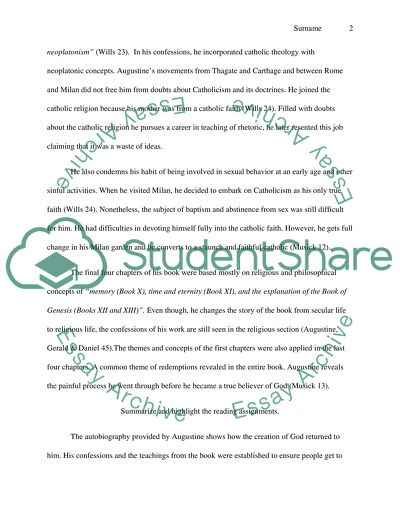Cite this document
(“Saint Augustine Term Paper Example | Topics and Well Written Essays - 1250 words”, n.d.)
Saint Augustine Term Paper Example | Topics and Well Written Essays - 1250 words. Retrieved from https://studentshare.org/religion-and-theology/1595278-saint-augustine
Saint Augustine Term Paper Example | Topics and Well Written Essays - 1250 words. Retrieved from https://studentshare.org/religion-and-theology/1595278-saint-augustine
(Saint Augustine Term Paper Example | Topics and Well Written Essays - 1250 Words)
Saint Augustine Term Paper Example | Topics and Well Written Essays - 1250 Words. https://studentshare.org/religion-and-theology/1595278-saint-augustine.
Saint Augustine Term Paper Example | Topics and Well Written Essays - 1250 Words. https://studentshare.org/religion-and-theology/1595278-saint-augustine.
“Saint Augustine Term Paper Example | Topics and Well Written Essays - 1250 Words”, n.d. https://studentshare.org/religion-and-theology/1595278-saint-augustine.


